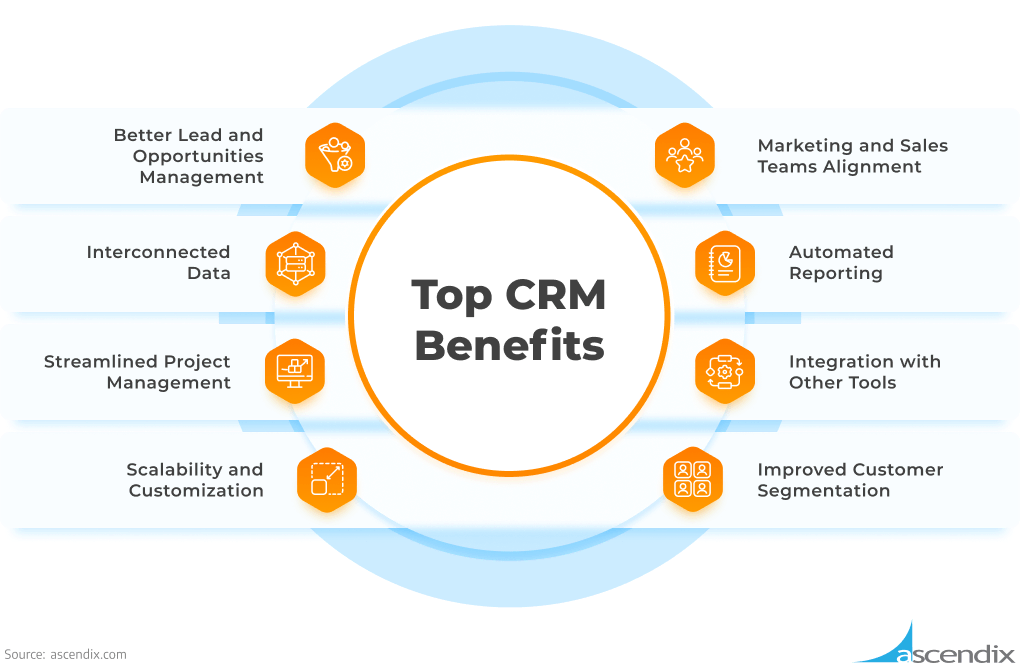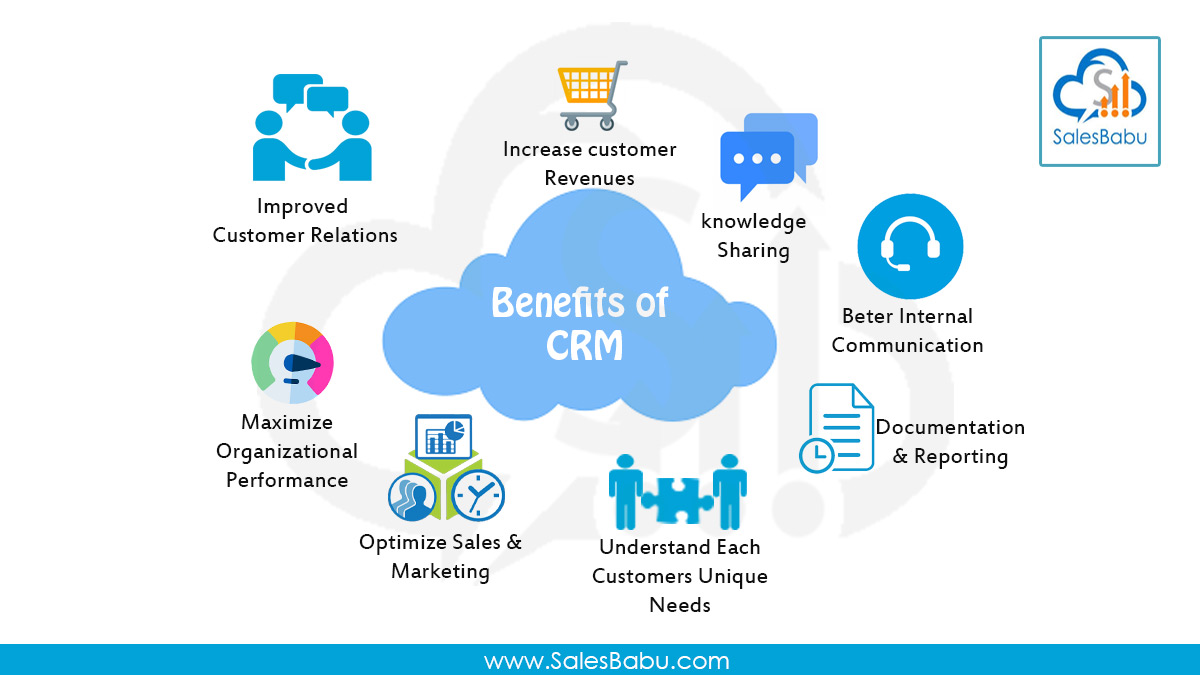In today’s competitive business landscape, managing customer relationships effectively is crucial for driving growth and revenue. A Customer Relationship Management (CRM) system is a powerful tool designed to help businesses streamline interactions with customers, prospects, and partners.
By centralizing data and automating tasks, a CRM enables organizations to build stronger relationships, improve customer satisfaction, and make data-driven decisions. As a result, businesses can enhance their overall performance and stay ahead of the competition.
Understanding what a CRM is and its benefits is essential for any business seeking to optimize its customer engagement strategies and achieve long-term success.
Understanding the Basics of CRM and Its Importance
A Customer Relationship Management (CRM) system is a technology that helps businesses manage their interactions with customers and potential customers. It is a tool that allows companies to store customer data, track interactions, and analyze customer behavior.
By using a CRM, businesses can improve their customer service, increase sales, and make more informed decisions. In today’s competitive business landscape, having a CRM system is no longer a luxury, but a necessity.
Key Features of a CRM System
A CRM system typically includes a range of features that enable businesses to manage their customer relationships effectively. These features include contact management, sales force automation, and marketing automation.
Contact management allows businesses to store customer data in a centralized database, making it easy to access and manage customer information. Sales force automation helps sales teams to track leads, manage sales pipelines, and close deals more efficiently.
Marketing automation enables businesses to automate marketing campaigns, track customer behavior, and analyze customer data.
Benefits of Using a CRM System
Using a CRM system can bring numerous benefits to businesses, including improved customer service, increased sales, and better decision-making. By having a complete view of customer interactions, businesses can provide more personalized and responsive customer service.
A CRM system can also help businesses to identify new sales opportunities and close deals more efficiently. Additionally, a CRM system provides businesses with valuable insights into customer behavior, enabling them to make more informed decisions.
Choosing the Right CRM System
When choosing a CRM system, businesses need to consider several factors, including scalability, customization, and integration. A scalable CRM system can grow with the business, adapting to changing needs and requirements.
Customization allows businesses to tailor the CRM system to their specific needs, while integration enables businesses to connect the CRM system with other business applications. By choosing the right CRM system, businesses can maximize the benefits of using a CRM.
| CRM Feature | Description | Benefits |
|---|---|---|
| Contact Management | Stores customer data in a centralized database | Improved customer service, better customer insights |
| Sales Force Automation | Tracks leads, manages sales pipelines, and closes deals | Increased sales, improved sales efficiency |
| Marketing Automation | Automates marketing campaigns, tracks customer behavior | Improved marketing ROI, better customer engagement |
What do you use a CRM for?

A CRM, or Customer Relationship Management system, is used to manage a company’s interactions with its customers and potential customers. It is a tool that helps businesses to organize, automate, and synchronize sales, marketing, and customer service activities.
Improving Customer Service
A CRM system helps businesses to provide better customer service by giving them a complete view of their customers’ interactions with the company. This allows customer service representatives to quickly access customer information and resolve issues more efficiently.
- Access to customer history and previous interactions
- Ability to track customer complaints and issues
- Personalized customer service through tailored solutions
Enhancing Sales Management
A CRM system is also used to manage sales activities, including lead generation, conversion, and closure. It provides sales teams with the tools they need to track leads, analyze sales data, and forecast future sales.
- Lead tracking and management
- Sales forecasting and performance analysis
- Automated sales processes and workflows
Streamlining Marketing Efforts
A CRM system can also be used to manage marketing campaigns and activities. It provides marketers with the tools they need to create, execute, and track marketing campaigns across multiple channels.
- Campaign creation and execution
- Lead generation and capture
- Marketing performance analysis and ROI tracking
What are the benefits of using CRM?

The benefits of using CRM are numerous and can have a significant impact on a business’s overall performance and success. By implementing a CRM system, businesses can streamline their sales, marketing, and customer service processes, leading to improved efficiency and productivity.
Enhanced Customer Experience
A CRM system allows businesses to have a unified view of their customers, enabling them to provide a more personalized and responsive service. This can lead to increased customer satisfaction and loyalty. Some key benefits of enhanced customer experience include:
- Improved customer insights through data analysis and reporting
- Personalized marketing and sales efforts
- Timely and effective issue resolution
Increased Sales and Revenue
CRM systems can help businesses to identify new sales opportunities and manage their sales pipeline more effectively. This can lead to increased sales and revenue. Some key benefits of increased sales and revenue include:
- Improved sales forecasting and pipeline management
- Targeted sales efforts through data analysis and segmentation
- Automated sales processes and workflows
Better Decision Making
A CRM system provides businesses with a wealth of data and insights that can be used to inform strategic decision making. This can help businesses to make more informed decisions and drive growth. Some key benefits of better decision making include:
- Data-driven insights through reporting and analytics
- Improved visibility into sales, marketing, and customer service performance
- Ability to track key performance indicators (KPIs) and adjust strategies accordingly
What is the main objective of CRM?
The main objective of CRM (Customer Relationship Management) is to manage and analyze customer interactions and data throughout the customer lifecycle. This involves using data and analytics to improve customer satisfaction, loyalty, and retention, as well as to drive sales growth and revenue.
Understanding Customer Needs
Understanding customer needs is a crucial aspect of CRM. It involves collecting and analyzing customer data to gain insights into their preferences, behaviors, and pain points. This information can be used to tailor marketing campaigns, improve customer service, and develop targeted sales strategies.
- Collecting customer data through various channels, such as social media, email, and customer feedback forms.
- Analyzing customer data to identify patterns and trends.
- Using customer insights to inform business decisions.
Enhancing Customer Experience
Enhancing customer experience is another key objective of CRM. This involves using customer data and insights to deliver personalized and relevant experiences across multiple touchpoints. By doing so, businesses can build strong relationships with their customers, drive loyalty, and increase customer retention.
- Using customer data to personalize marketing messages and offers.
- Providing omnichannel customer support to ensure seamless interactions.
- Continuously monitoring and improving customer experience through feedback and analytics.
Driving Business Growth
Driving business growth is a critical outcome of effective CRM. By leveraging customer insights and data, businesses can identify new sales opportunities, optimize their sales processes, and improve their overall revenue.
- Using data analytics to identify high-value customer segments.
- Developing targeted sales strategies to drive conversions.
- Continuously monitoring and optimizing sales performance to improve results.
What is the ultimate purpose of CRM?

The ultimate purpose of CRM is to create a long-term, mutually beneficial relationship between an organization and its customers by understanding their needs, preferences, and behaviors.
This is achieved through the collection, analysis, and utilization of customer data to improve customer satisfaction, retention, and ultimately drive business growth.
Enhancing Customer Experience
CRM enables organizations to provide a personalized and seamless customer experience across various touchpoints. By having a unified view of customer interactions, businesses can tailor their marketing, sales, and customer service efforts to meet the specific needs of each customer.
- CRM helps to identify customer preferences and tailor marketing efforts accordingly.
- It enables businesses to respond promptly to customer inquiries and concerns.
- CRM facilitates the creation of targeted loyalty programs to retain valuable customers.
Improving Customer Retention
Effective CRM strategies focus on building strong relationships with customers to increase loyalty and retention. By analyzing customer data and behavior, organizations can identify potential issues before they become major problems and take proactive measures to address them.
- CRM helps to identify high-risk customers and implement strategies to retain them.
- It enables businesses to measure the effectiveness of their customer retention efforts.
- CRM facilitates the development of targeted marketing campaigns to re-engage inactive customers.
Driving Business Growth
Ultimately, the purpose of CRM is to drive business growth by increasing revenue, improving profitability, and expanding market share. By leveraging customer insights and improving customer relationships, organizations can identify new sales opportunities, optimize their pricing strategies, and develop more effective marketing campaigns.
- CRM helps to identify cross-selling and upselling opportunities.
- It enables businesses to develop targeted marketing campaigns to high-value customer segments.
- CRM facilitates the optimization of pricing strategies to maximize revenue and profitability.
Frequently Asked Questions
What is a CRM?
A CRM, or Customer Relationship Management system, is a tool that helps businesses manage their interactions with customers and potential customers. It stores customer data, tracks interactions, and analyzes customer behavior to improve relationships and sales. By using a CRM, businesses can streamline processes, improve customer satisfaction, and increase revenue.
Why do businesses need a CRM?
Businesses need a CRM to manage their customer interactions effectively. It helps them to stay organized, respond to customer inquiries promptly, and personalize their marketing efforts. A CRM also enables businesses to analyze customer data, identify trends, and make informed decisions to drive growth and profitability.
What are the benefits of using a CRM?
Using a CRM provides numerous benefits, including improved customer satisfaction, increased sales, and enhanced customer insights. It also helps businesses to automate routine tasks, reduce manual errors, and improve collaboration among teams. By leveraging a CRM, businesses can gain a competitive edge and achieve their goals more efficiently.
How does a CRM improve customer relationships?
A CRM improves customer relationships by providing a centralized platform to store customer data, track interactions, and analyze customer behavior. It enables businesses to respond promptly to customer inquiries, personalize their marketing efforts, and offer tailored solutions to meet customer needs. By using a CRM, businesses can build stronger, more meaningful relationships with their customers.


